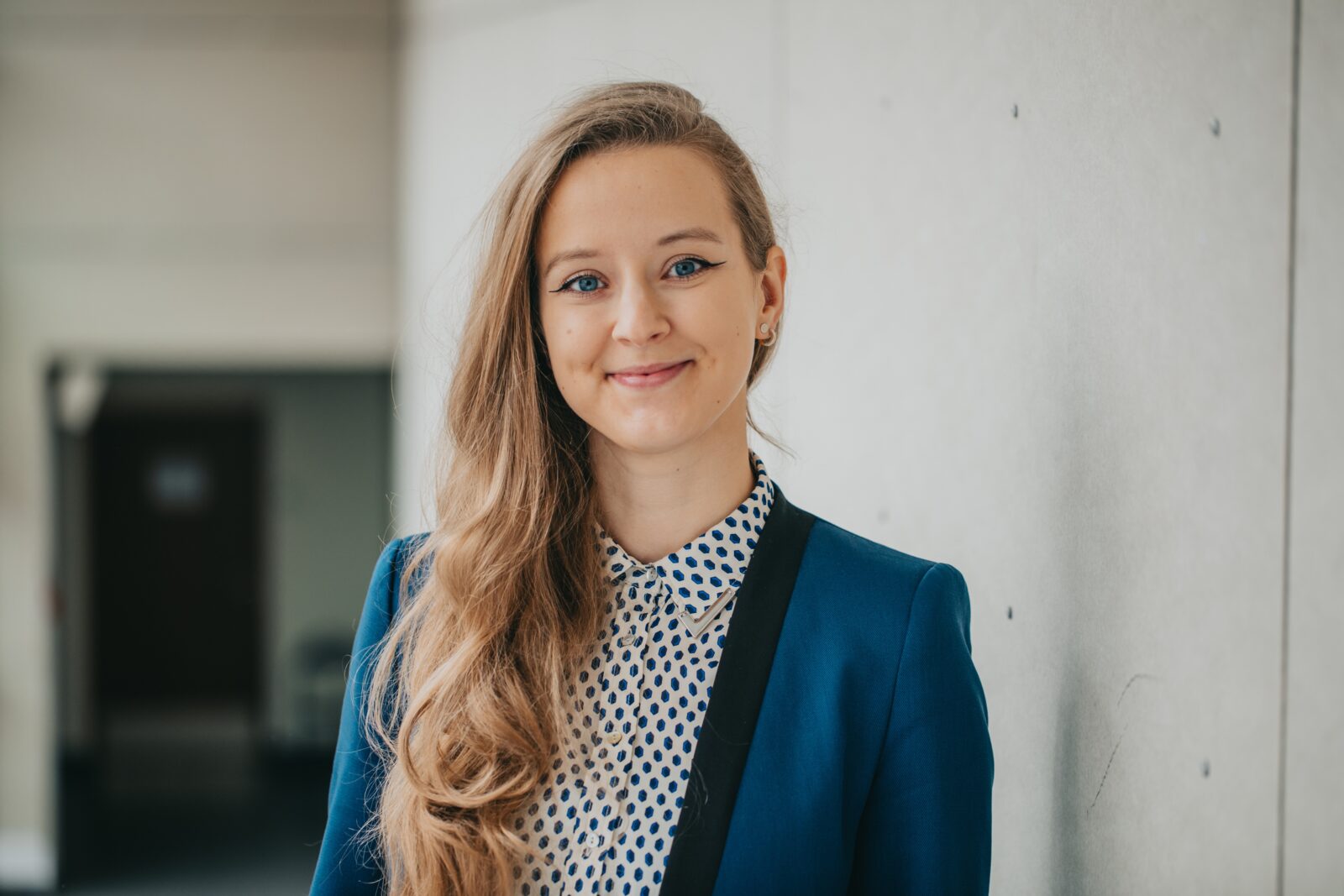
photo: Dominika Hull-Bruska
Dr Katarzyna Parchimowicz and the Arqus Mentoring Programme
Dr Katarzyna Parchimowicz is an assistant professor at the Incubator of Research Digital Justice Center Excellence at the University of Wrocław, as well as a researcher collaborating with the European Banking Institute and the Amsterdam Center for Law & Economics. She earned her Ph.D. in law at the University of Wrocław. She also holds a Master of Laws and Finance (LL.M. Finance) degree from the Goethe University Frankfurt. Her research focuses on international and EU financial regulations, particularly on regulations concerning global systemically important banks and new technologies in the financial system. She is the author of the book ‘The Regulation of Megabanks: Legal Frameworks of the USA and EU’ (Routledge, 2023) and the winner of the European Central Bank Legal Research Programme 2022.
Dr Katarzyna Parchimowicz participated in the mentoring programme as part of the Arqus European University Alliance! She shared her experiences with us.
We recommend reading, especially since Arqus is currently recruiting for the next edition of the Mentoring Programme for Early-Stage Researchers. Applications are accepted until March 10th!
What prompted you to participate in the Mentoring Programme organised by Arqus?
I thought it would be a good opportunity to meet other scholars from Arqus member universities. Besides, I believe that someone from outside a particular academic institution – like a mentor from outside the University of Wrocław – can offer a different perspective on certain issues related to academic work, and teaching. Drawing from the experiences of other scholars, or directly seeking advice from them, has helped me a lot so far.
Who is your mentor?
Dr Karen Lynch Shally from Maynooth University in Ireland.
How is the cooperation going?
Very successfully, even phenomenally. We’ve had several online meetings. In the first one, we outlined how we envisioned our mentoring relationship, and our expectations were quite similar. In the further meetings, we discussed various topics – Karen is an amazing scholar, and experienced, but also friendly and warm, without the unnecessary distance that usually arises between younger and more experienced individuals in academia. I consulted with her on a grant project that I submitted in November. She read it several times to make sure nothing was omitted. Her feedback was very helpful. Unfortunately, we haven’t had the opportunity to meet in person yet, but we will definitely do so at some conference, as our research interests are quite similar.
I know you decided this time to participate in the Arqus Mentoring Programme as a mentor. What led you to this decision?
At the Incubator of Research Digital Justice Center, we attach great importance to supporting younger doctoral students/students working with us. Maybe I don’t have as much experience as Karen, but collaborating in the Center with younger scholars made me realise that I do have something to pass on. Perhaps someone with similar research interests will be looking for a mentor, and I’ll be able to help.
What can your mentee learn from you?
I think it depends on what the person would like to gain from the mentoring programme. I would certainly adopt a similar strategy to the one proposed by Karen and initially discuss expectations. I could consult on a conference abstract, a draft grant application, or read an article and provide feedback. I don’t consider myself an amazing authority, but I’ve had several articles and grants rejected, and several accepted, and I could at least share lessons learned from these experiences to perhaps spare a younger person one, or maybe two, failures. Or at least help them understand that failures are an integral part of this work and should not be taken personally.
Would you recommend the Arqus Mentoring Programme?
With all my heart. You can only gain by applying for a place in this programme. I also wanted to emphasise that this programme is not just online meetings with a mentor, but also many interesting meetings and workshops (some live, most online) for young researchers. These meetings address key issues – tips on how to sensibly publish research results, how to take care of your mental health, how to choose grant and scholarship programmes. Just apply!
Interviewed by Agata Mitek
The recruitment for the 2nd edition of the mentoring programme for early-stage researchers lasts only until March 10th!
The Arqus mentoring programme for early-stage researchers is designed for doctoral students and researchers right after their doctorate who are interested in receiving high-quality support from specialised mentors! The mentoring programme will last for 9 months and will start in September 2024 with inaugural workshops in Lyon.
The deadline for submitting applications is March 10, 2024, at 23:59 CET.
You will find all detailed information about the Arqus Mentoring Programme for Early-Stage Researchers and the application form HERE.
Translated by Karolina Łodyga (student of English Studies at the University of Wrocław) under the supervision of Maria Kozan as part of the translation practice.



